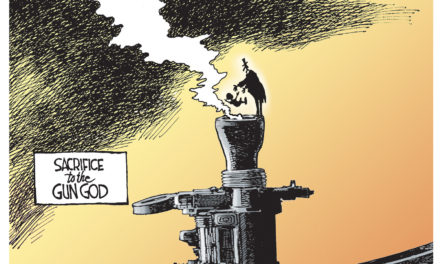Coach Cal needs to tell the Memphis Regional Chamber about the dangers of “bulletin board motivation” for your opponents. As the University of Memphis head basketball coach, Calipari has warned his team that smart players don’t make comments that can come back to haunt you by motivating the opposing team.
Surely, last week’s presentation by the Chamber’s consultants has already made its way into the clipping files of recruiters in cities competing with Memphis for business recruitment. Our consultants gave a litany of what’s wrong with the Memphis region after short listing what is right. In fact, one consultant somberly concluded that Memphis’ challenges far outweigh its strengths.
The list included:
* a shortage of skilled workers
* a largely rural area
* a weak office base
* the lack of a research-focused university
* the lack of regional cooperation
* insufficient funding for higher education
And if that wasn’t enough, they even trotted out Memphis’ Four Horsemen of the Apocalypse — high crime, racial divisiveness, high taxes and a struggling education system.
It was enough to make you wonder why any of us stay here.
Special emphasis was made about our poor school system, although such complaints are also commonplace in Austin, San Francisco and Boston and yet they prosper. The bigger problem for us is that we are not a talent magnet like those cities, where in-migration of new workers offsets the problems of their schools. To our knowledge, no consultant mentioned the need for strategies to attract the young, mobile professionals who are the gold standards for the Knowledge Economy. Sadly, Memphis pioneered this research, but has never seriously acted on it.
While it a classic tactic of Chambers everywhere to create a crisis as the basis to launch a new fund-raising campaign, we live in a virtual world where these negative assessments of what’s wrong with Memphis are immediately available at any point on the globe. And it’s a safe bet that a prospect considering Memphis has already been shown these comments by our competitors.
More to the point, after spending decades talking about ways to improve the Memphis self-image and working to improve it, the Chamber’s comments made you want to pack your bags. The rhetoric and list of challenges were eerily reminiscent of Memphis 2005 and the Governor’s Alliance on Regional Excellence — both centerpiece Chamber programs over the past 10 years. It was as if time had stood still. We were again in the mid-1990’s, and the millions of dollars in public and private money had never been spent to deal with these very same problems.
For our money, even a speech about how winners never quit and quitters never win would have been better, or even, we respect our opponents and take it one game at a time. At least then, we wouldn’t give opponents the ammunition to load their guns to shoot at us or demoralize our own people. Somebody should just ask Coach Cal how it’s done.



